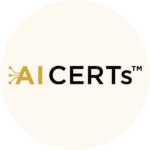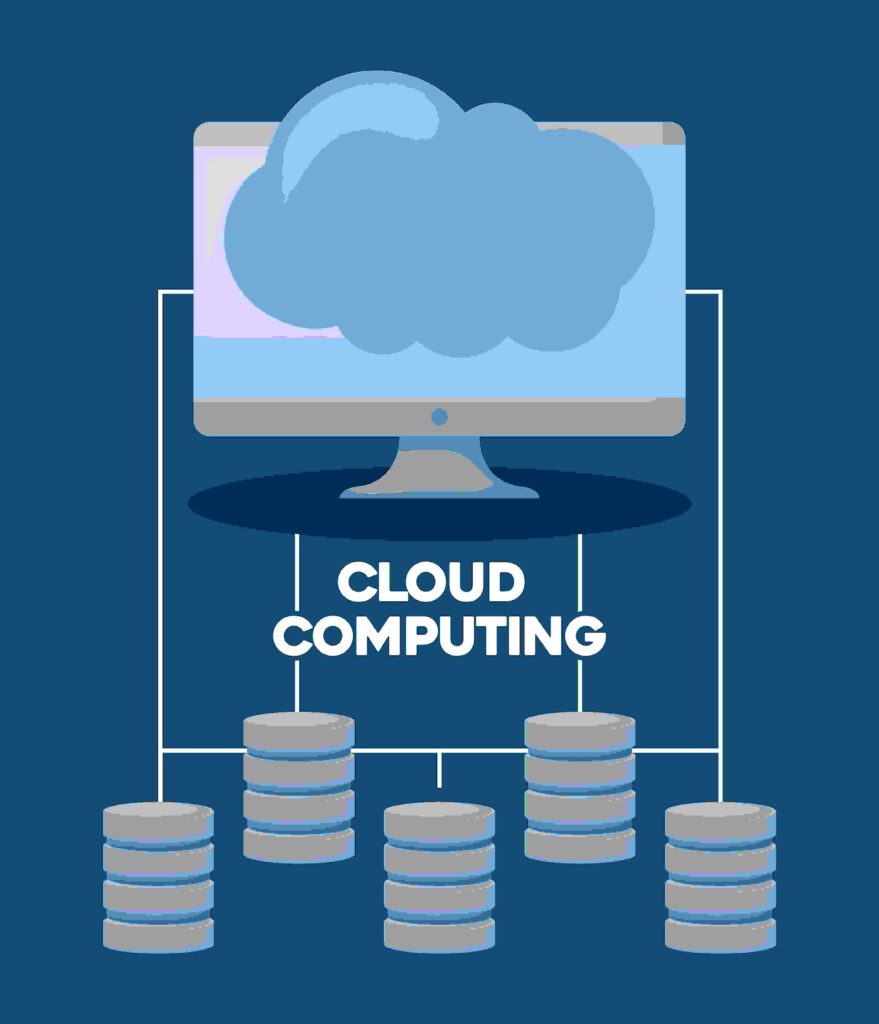
AI CERTS
6 months ago
Advanced AI Cloud Computing Certification:
The synergy between Artificial Intelligence (AI) and cloud computing is revolutionizing the tech landscape, driving innovation and efficiency across industries. As businesses adopt AI-powered cloud solutions to handle complex workloads, enhance scalability, and reduce costs, there’s a growing demand for professionals equipped with specialized skills. An advanced AI cloud computing certification provides the expertise needed to integrate these cutting-edge technologies, ensuring professionals remain competitive in the evolving digital economy.
This article delves into the significance of AI in cloud computing, the key skills covered in Advanced AI Cloud Computing Certification programs, real-world applications, and the benefits for businesses and professionals alike.

Why AI and Cloud Computing Are a Powerful Combination
AI and cloud computing complement each other to deliver scalable, cost-effective, and high-performance solutions. While cloud computing provides the infrastructure to store and process vast amounts of data, AI leverages this data to deliver actionable insights, automate processes, and enhance decision-making. This collaboration enables businesses to deploy AI applications seamlessly and scale them as needed. Enrolling in Advanced AI Cloud certification is required in order to understand this combination concert in deeply.
Key benefits of integrating AI with cloud computing include:
- Scalability: Cloud platforms like AWS, Google Cloud, and Azure allow businesses to scale AI applications on demand.
- Cost Efficiency: Pay-as-you-go models reduce upfront costs, making AI accessible to businesses of all sizes.
- Enhanced Data Processing: AI-powered cloud tools analyze massive datasets to uncover patterns, trends, and insights.
- Automation: AI automates repetitive tasks, improving operational efficiency and reducing human error.
Key Skills Covered in an Advanced AI Cloud Computing Certification
An advanced AI cloud computing certification equips professionals with a comprehensive understanding of AI and cloud integration. The following skills are typically included:
1. Cloud Platform Expertise
Professionals learn to work with leading cloud platforms like AWS, Microsoft Azure, and Google Cloud. These platforms provide AI services such as machine learning, natural language processing (NLP), and computer vision.
2. AI Model Deployment
Certification programs teach how to deploy AI models on cloud platforms, enabling applications such as image recognition, chatbots, and predictive analytics. Skills in containerization and orchestration tools like Kubernetes are often emphasized.
3. Data Engineering and Storage
Participants gain expertise in managing cloud-based data pipelines, optimizing storage solutions, and ensuring data security. Knowledge of cloud databases such as Amazon S3 and BigQuery is essential.
4. Scalability and Optimization
Professionals learn to scale AI workloads efficiently using cloud resources, ensuring optimal performance and cost management. Techniques like load balancing and serverless computing are commonly covered.
5. Ethical AI and Compliance
Certification programs include training on ethical considerations and compliance with data protection regulations like GDPR, ensuring responsible AI deployment in cloud environments.
Real-World Applications of AI in Cloud Computing
AI-powered cloud computing solutions are transforming industries by enabling smarter, faster, and more efficient operations. Here are some practical applications:
1. Predictive Maintenance in Manufacturing
AI models hosted on cloud platforms analyze sensor data to predict equipment failures, minimizing downtime and reducing maintenance costs. For example, Siemens uses AI-driven cloud solutions for predictive maintenance across its manufacturing units.
2. Customer Service Automation
Cloud-based AI tools power virtual assistants and chatbots, delivering personalized customer support at scale. Tools like Google Dialogflow leverage NLP to provide real-time responses, improving customer satisfaction.
3. Healthcare Analytics
AI models deployed on the cloud analyze patient data to assist in diagnostics, treatment planning, and drug discovery. For instance, IBM Watson Health uses cloud-based AI to deliver advanced healthcare solutions.
4. Fraud Detection in Finance
AI algorithms hosted on the cloud detect fraudulent activities by analyzing transaction patterns and flagging anomalies in real time. Financial institutions like JPMorgan Chase rely on AI-powered cloud platforms for fraud prevention.
Related Reading: Discover how cloud computing is transforming industries in Forbes’ report on cloud technology.
Benefits of Advanced AI Cloud Computing Certification
For professionals and organizations, obtaining an advanced AI cloud computing certification offers numerous advantages:
1. Competitive Edge in the Job Market
Certified professionals stand out in the competitive job market, showcasing their expertise in AI and cloud integration. This opens doors to roles such as AI architect, cloud engineer, and data scientist.
2. Improved Efficiency and Scalability
Certification equips professionals with skills to deploy and manage scalable AI applications, reducing operational costs and enhancing efficiency.
3. Increased Innovation Potential
By mastering AI and cloud tools, professionals can develop innovative solutions that address complex business challenges, driving digital transformation.
4. Enhanced Security and Compliance
Certified professionals are trained to implement robust security measures and ensure compliance with data protection regulations, safeguarding organizational assets.
External Resource: Read more about How Cloud Computing Revolutionized Business Operations
Use the coupon code NEWCOURSE25 to get 25% OFF on AI CERTS' certifications. Don't miss out on this limited-time offer! Visit this link to explore AI+ Cloud™ Certification and enroll today.
Challenges and Ethical Considerations in AI Cloud Computing
While AI-powered cloud computing offers transformative potential, it also presents challenges and ethical considerations:
1. Data Privacy and Security
Storing sensitive data on the cloud raises concerns about breaches and unauthorized access. Certification programs emphasize secure cloud practices and compliance with privacy laws.
2. Environmental Impact
Cloud computing requires significant energy resources, contributing to carbon emissions. Professionals must learn about green cloud strategies, such as renewable energy-powered data centers.
3. Algorithm Bias
AI models can inherit biases from their training data, leading to unfair outcomes. Certification programs cover techniques to identify and mitigate bias, ensuring ethical AI deployment.
4. Cost Management
While cloud computing is cost-efficient, improper usage can lead to unexpected expenses. Certification teaches cost management strategies, such as using reserved instances and optimizing resource allocation.
The Future of AI Cloud Computing
AI and cloud computing are evolving rapidly, with emerging trends set to redefine their applications. Here are some anticipated developments:
- Edge Computing: AI-powered devices at the network edge will process data locally, reducing latency and bandwidth usage.
- Quantum Computing Integration: Cloud platforms will incorporate quantum computing, enabling unprecedented AI capabilities.
- AI-Powered DevOps: Automation in DevOps processes will increase, with AI managing deployments, monitoring, and troubleshooting.
As these advancements take shape, professionals with an advanced AI cloud computing certification will be pivotal in implementing and managing cutting-edge solutions.